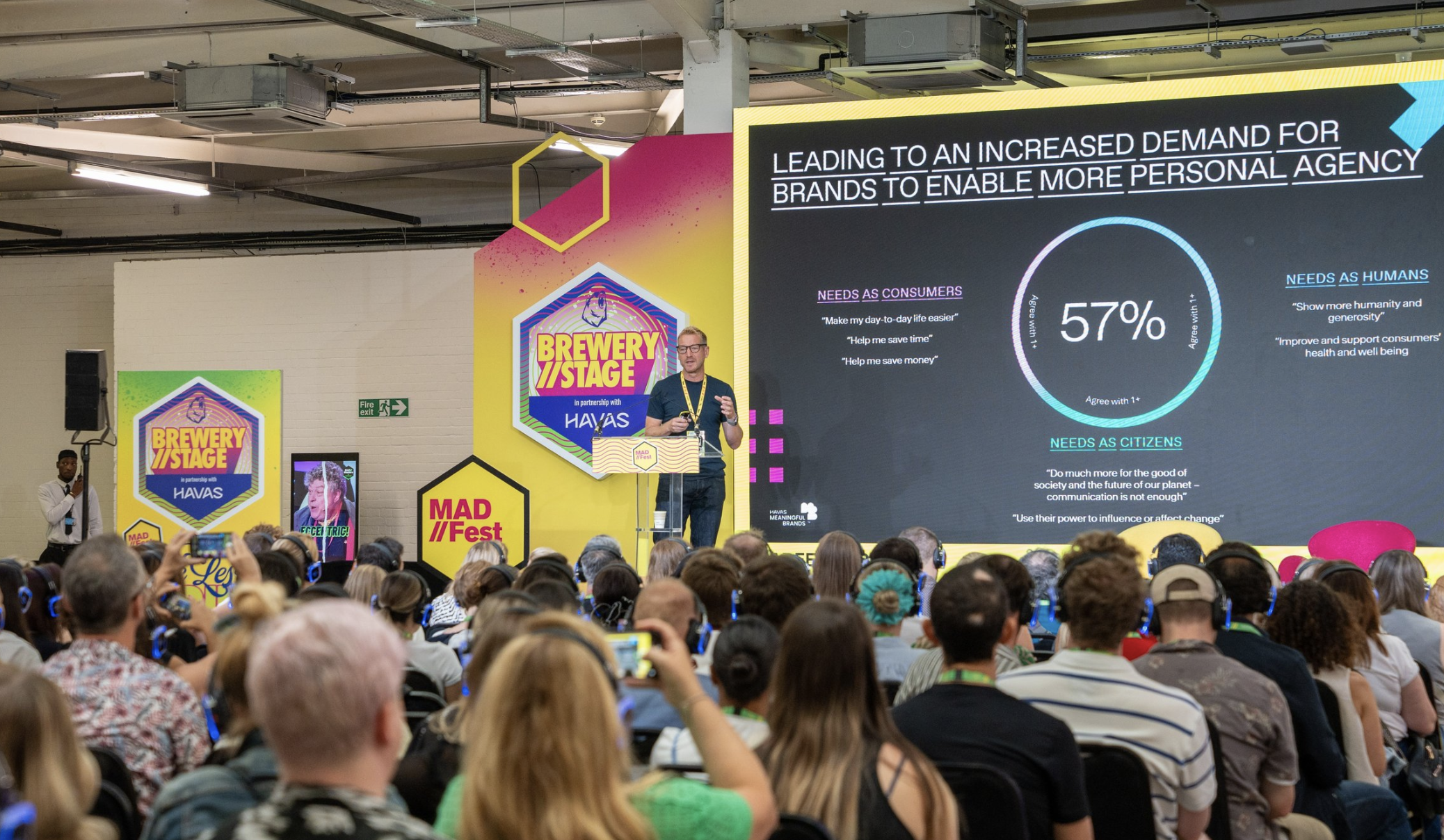Adapt or Die: Rewriting the rulebook in the battle against boring
28 July 2025
“Be Less Boring” was the provocative invitation from MAD//Fest London 2025. Sounds good, doesn't it. Havas tells MAD//Insight how this works in reality.
At Havas, we’re well placed to explore this topic because we’ve been investigating people’s changing attitudes, behaviours and expectations of brands for the past 17 years through our proprietary Meaningful BrandsÔ study.
It’s given us a distinct point of view, which comes in three parts: apathy, agency, and adaptability.
Apathy is the enemy.
People wouldn’t care if 78% of brands disappeared tomorrow. And that figure is up +5% year-on-year.
Inconvenient truth or existential threat? The reality is that apathy has consequences.
Apathy makes people lose patience more quickly. Our research shows that 61% of people agree that “companies and bosses face more scrutiny now than ever – where one mistake can mean you are cancelled”.
Apathy makes loyalty evaporate. 69% of people agree that they are “quick to switch brands if they find a more cost-effective or convenient option”. And 46% say they have “stopped buying from brands that do not respect the planet or society”.
How do brands address these issues? The first step is better understanding what we have identified as a growing demand for personal agency.

Mark Sinnock, Global Chief Strategy, Data and Innovation Officer, Havas Creative Network, during his outstanding keynote at MAD//Fest
We find it in people’s resilience to crisis. While 69% believe “the world is going in the wrong direction”, 65% still claim high levels of happiness and 57% optimism.
These emotions come from a sense of control. 58% agree that “technology is creating new and exciting possibilities for me” and 49% feel that “the future is bright and full of opportunities”.
Consumer behaviour is one area where people feel they can take control, with more intentional purchase decisions becoming the norm. 65% say they “give more consideration to and exercise more caution about what they buy” than a year ago. And 53% choose “to reuse, rent or buy second hand before buying new”.
Compared to 2024, people are making positive lifestyle choices to improve their quality of life. 52% are wasting less. 51% are being more physically active. 47% are making better nutritional choices. And the list goes on.
Agency is also affecting people’s expectations of brands. 57% want brands to enable more personal agency, meeting their needs as consumers (69% believe “brands should help me save money”), as humans (73% believe “brands should show more humanity and generosity when times are tough”), and as citizens (70% believe “brands should be doing much more for the good of society and the future of our planet—communication is not enough”).
Winning brands are adapting dynamically to people’s changing needs. If better understanding the growing demand for personal agency is the first step in addressing apathy, the second step is for brands to embrace what we’re calling dynamic adaptability.
Our research helped us identify a cohort of the most dynamic brands. They are an eclectic mix from a wide range of categories.
These brands give people more personal agency across a spectrum of needs, performing +21% better than the least dynamic on delivering against Functional needs, +18% against Collective needs, and +25% against Personal needs.
This dynamism drives stronger attachment. People’s sense of attachment to the most dynamic brands is over twice as great (x2.3) as to the least dynamic.
And this helps to fight apathy and indifference, with the most dynamic brands outperforming other brands significantly across a broad scope of KPIs from overall impression (+59%), through trust (+63%), to purchase intent (+89%).
Decoding dynamic adaptability leads to a new playbook for growth.
1. Treat ‘brand’ as dynamic and fluid, rather than a fixed asset.
2. Be open to dialogue – listening, learning and responding to what matters most to different people.
3. Create the tools and means to empower people with personal agency.
4. Speed up the cycle of listening, creating and executing at speed to dial up relevance.
Adapt or die? That is the question.

